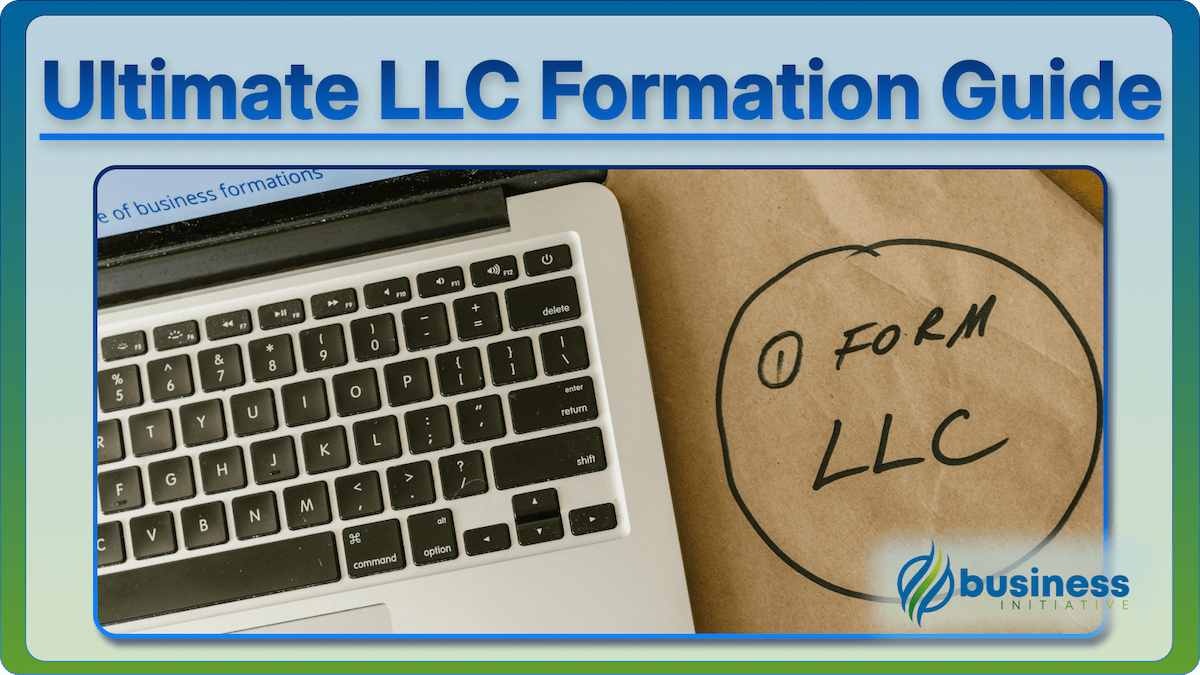Your business is growing.
You’re getting clients in other states. You’re hiring remote employees. You’re opening a new location.
But you’re not registered there.
You’re operating illegally. You face penalties. You can’t enforce contracts. You’re exposed to legal risks.
This doesn’t have to happen.
Foreign qualification is the process of registering your existing business in a new state. It’s required when you expand beyond your home state. It’s straightforward if you know the steps.
This guide shows you exactly how.
Step-by-step instructions. Clear definitions. Real timelines. Example scenarios. Everything you need to expand safely.
Read this. Understand foreign qualification. Expand your business legally.

 Key Takeaways
Key Takeaways
- Foreign qualification is required when your business has a physical presence, employees, or significant business activity in a state other than where you formed
- The process involves filing a Certificate of Authority (or similar document) with the new state's Secretary of State office
- You must maintain compliance in all states where you're registered—annual reports, franchise taxes, and registered agents in each state
- Foreign qualification typically takes 5-10 business days (or 1-3 days with expedited processing) and costs $50-$500 depending on the state
- Failing to foreign-qualify can result in penalties, inability to enforce contracts, and legal exposure—it's better to qualify proactively
 Table of Contents
Table of Contents

What Is Foreign Qualification?
Foreign qualification is the process of registering your existing business entity in a state other than where you originally formed it.
Simple definition: Your business is “domestic” in the state where you formed it. It’s “foreign” in every other state. To operate legally in a foreign state, you must “qualify” there.
What it means:
- Your business is formed in State A (your home state)
- You want to operate in State B (a new state)
- You must foreign-qualify in State B to operate legally there
Why it matters:
- Operating without foreign qualification is illegal
- You can’t enforce contracts in that state
- You face penalties and fines
- You’re exposed to legal risks
The good news: The process is straightforward. This guide shows you how.
When Is Foreign Qualification Required?
Foreign qualification is required when your business has a “presence” in another state. Here’s what counts as presence:
Physical Presence
You have a physical location in the state:
- Office or storefront
- Warehouse or distribution center
- Manufacturing facility
- Any physical business location
Example: You form your LLC in Texas. You open a store in California. You must foreign-qualify in California.
Employees
You have employees working in the state:
- Full-time employees
- Part-time employees
- Contractors (in some cases)
- Remote employees (if they’re based in that state)
Example: You form your LLC in New York. You hire a remote employee who lives in Florida. You may need to foreign-qualify in Florida.
Note: Remote employees can be tricky. If the employee works from home in another state, you may need to qualify there. Check with that state’s requirements.
Significant Business Activity
You have significant business activity in the state:
- Regular sales or services
- Ongoing contracts
- Significant revenue from that state
- Regular business meetings or operations
Example: You form your LLC in Delaware. You regularly do business with clients in California, generating significant revenue. You may need to foreign-qualify in California.
Pro tip: “Significant” varies by state. Some states have specific thresholds (e.g., $50,000 in revenue, 20% of sales). Check each state’s requirements. See our state-by-state checklist for guidance.

When Is It NOT Required?
Foreign qualification is NOT required for:
Occasional Business
You do business occasionally but don’t have a presence:
- One-time sales
- Occasional client meetings
- Trade shows or conferences
- Online sales only (in most cases)
Example: You form your LLC in Texas. You attend a trade show in California once a year. You probably don’t need to foreign-qualify in California.
Online-Only Operations
You operate entirely online with no physical presence:
- E-commerce business
- Online services
- Digital products
- No employees or offices in other states
Example: You form your LLC in Delaware. You sell products online to customers nationwide. You ship from a warehouse in Delaware. You probably don’t need to foreign-qualify in other states.
Warning: Online-only rules are changing. Some states are requiring foreign qualification for businesses with significant online sales. Check current requirements.
Interstate Commerce
You’re engaged in interstate commerce:
- Shipping products across state lines
- Providing services across state lines
- No physical presence in other states
Example: You form your LLC in Texas. You ship products to customers in all 50 states from your Texas warehouse. You probably don’t need to foreign-qualify in other states.
Pro tip: When in doubt, check with the state. It’s better to qualify unnecessarily than to operate illegally. See our Secretary of State directory for contact information.

The Foreign Qualification Process
The foreign qualification process is similar to initial formation, but simpler. Here’s what it involves:
Step 1: Choose Your Registered Agent
You need a registered agent in the new state:
- Must have a physical address in that state
- Must be available during business hours
- Can be yourself, an employee, or a professional service
Recommendation: Use a professional registered agent service for multi-state operations. They handle compliance across all states. See our registered agent guide for details.
Step 2: Get a Certificate of Good Standing
Most states require a Certificate of Good Standing from your home state:
- Proves your business is in good standing
- Usually obtained from your home state’s Secretary of State
- Must be recent (usually within 30-90 days)
How to get it:
- Request online from your home state’s Secretary of State website
- Usually takes 1-3 business days
- Costs $10-$50 typically
Step 3: File Certificate of Authority
File the foreign qualification document with the new state:
- Called “Certificate of Authority” (LLC) or “Application for Authority” (Corporation)
- Similar to Articles of Organization/Incorporation
- Requires information about your business
Required information:
- Business name (must be available in new state)
- Home state and formation date
- Principal office address
- Registered agent name and address
- Business purpose
- Management structure
Step 4: Pay Filing Fees
Pay the required filing fee:
- Varies by state: $50-$500 typically
- Some states charge annual fees
- Expedited processing available in most states
Step 5: Obtain Business Licenses
You may need business licenses in the new state:
- Professional licenses
- Industry-specific licenses
- Local business licenses
- Sales tax permits
Check requirements: Each state and locality has different requirements. See our state-by-state checklist for guidance.
Step-by-Step Guide
Here’s exactly how to foreign-qualify, step by step:
Step 1: Determine If You Need to Qualify
Ask yourself:
- Do I have a physical location in this state?
- Do I have employees in this state?
- Do I have significant business activity in this state?
If yes to any: You likely need to foreign-qualify.
If unsure: Check the state’s requirements or consult with a professional.
Step 2: Choose Your Business Name
Your business name must be available in the new state:
- Check name availability using the state’s business search
- If your name is taken, you may need to use a “fictitious name” or “doing business as” (DBA)
- Some states allow you to use your original name even if similar names exist
Resources:
- State business search tools (see our state-by-state checklist)
- Secretary of State directory
Step 3: Get Certificate of Good Standing
Request from your home state:
- Go to your home state’s Secretary of State website
- Request Certificate of Good Standing
- Pay the fee (usually $10-$50)
- Receive certificate (usually 1-3 business days)
Keep it recent: Most states require the certificate to be within 30-90 days of filing.
Step 4: Choose Registered Agent
Select your registered agent for the new state:
- Professional service (recommended for multi-state)
- Yourself or employee (if you have a physical address in that state)
- Must have physical address in the new state
Pro tip: Professional registered agent services make multi-state compliance easier. They handle all states from one service.
Step 5: Complete Certificate of Authority Form
Fill out the foreign qualification form:
- Available on the new state’s Secretary of State website
- Similar to formation forms but simpler
- Requires information about your existing business
Common fields:
- Business name
- Home state and formation date
- Principal office address
- Registered agent information
- Business purpose
- Management structure
Resources:
- Formation paperwork guide for understanding form fields
- State-specific forms (see our state-by-state checklist)
Step 6: File with New State
Submit your Certificate of Authority:
- File online (preferred) or by mail
- Include Certificate of Good Standing
- Pay filing fee
- Choose expedited processing if needed (1-3 days vs 5-10 days)
Timeline:
- Standard processing: 5-10 business days
- Expedited processing: 1-3 business days
- Some states offer same-day processing
Pro tip: File early in the week (Monday-Tuesday) for fastest processing. See our timing guide for details.
Step 7: Obtain Required Licenses
Get any required business licenses:
- Professional licenses (if applicable)
- Industry-specific licenses
- Local business licenses
- Sales tax permits
Check requirements: Each state and locality has different requirements. Research before you start operating.
Step 8: Update Your Business Information
Update your business information:
- Business website
- Marketing materials
- Contracts and agreements
- Client communications
Let clients know: If you’re expanding to serve them better, let them know about your new presence.

Ongoing Compliance Requirements
Foreign qualification isn’t a one-time event. You must maintain compliance in all states where you’re registered.
Annual Reports
You must file annual reports in each state:
- Each state has its own deadline
- Each state has its own requirements
- Missing deadlines results in penalties
Solution: Create a compliance calendar. Track all deadlines. Set reminders. See our compliance mistakes guide for common errors to avoid.
Franchise Taxes
You may owe franchise taxes in multiple states:
- Each state has its own tax structure
- Some states don’t have franchise taxes
- Others have complex calculations
Solution: Understand tax obligations in each state. Budget for multiple tax payments. Consider professional tax help.
Registered Agents
You must maintain registered agents in each state:
- Each state requires its own registered agent
- Must have physical address in that state
- Must be available during business hours
Solution: Professional registered agent services can handle all states from one service. This simplifies multi-state compliance.
Business Licenses
You must maintain licenses in each state:
- Renew licenses on time
- Update licenses when information changes
- Comply with state-specific requirements
Solution: Track license renewal dates. Set reminders. Keep licenses current.
Pro tip: Multi-state compliance is complex. Consider professional help or compliance software to manage it all. See our registered agent guide for services that handle multi-state compliance.
Common Mistakes to Avoid
Here are the most common foreign qualification mistakes:
Mistake #1: Not Qualifying When Required
What happens: You operate in a new state without foreign-qualifying. You face penalties. You can’t enforce contracts.
How to avoid: Understand when foreign qualification is required. When in doubt, qualify. It’s better to qualify unnecessarily than to operate illegally.
Mistake #2: Qualifying When Not Required
What happens: You foreign-qualify unnecessarily. You pay fees. You create ongoing compliance obligations.
How to avoid: Understand when foreign qualification is NOT required. Don’t qualify for occasional business or online-only operations (unless required).
Mistake #3: Missing Annual Reports
What happens: You forget to file annual reports in foreign states. You lose good standing. You face penalties.
How to avoid: Create a compliance calendar. Track all deadlines. Set reminders. Use professional services if needed.
Mistake #4: Not Maintaining Registered Agents
What happens: Your registered agent moves or stops serving you. You miss legal documents. You face default judgments.
How to avoid: Use professional registered agent services. Keep agent information current. Update immediately when it changes.
Mistake #5: Not Getting Required Licenses
What happens: You operate without required licenses. You face penalties. You may be shut down.
How to avoid: Research license requirements in each state. Get all required licenses before operating.
Pro tip: See our 21 Most Expensive Formation Mistakes guide for more common errors and how to avoid them.
Real Examples
Here are real-world examples of foreign qualification:
Example 1: E-Commerce Business
Situation: You form your LLC in Delaware. You sell products online to customers nationwide. You ship from a warehouse in Delaware.
Do you need foreign qualification? Probably not. You have no physical presence in other states. You’re engaged in interstate commerce.
Exception: If you have significant sales in a state (some states have thresholds), you may need to qualify there.
Example 2: Consulting Business with Remote Employees
Situation: You form your LLC in New York. You hire a remote consultant who lives in California. They work from home in California.
Do you need foreign qualification? Possibly. If the employee is based in California and works there regularly, you may need to foreign-qualify in California.
Solution: Check California’s requirements. Some states require qualification for remote employees. Others don’t.
Example 3: Retail Business Opening Second Location
Situation: You form your LLC in Texas. You open a second store in California.
Do you need foreign qualification? Yes. You have a physical location in California. You must foreign-qualify there.
Process:
- Get Certificate of Good Standing from Texas
- Choose registered agent in California
- File Certificate of Authority in California
- Get required business licenses
- Maintain compliance in both states
Example 4: Service Business with Regular Clients
Situation: You form your LLC in Florida. You regularly provide services to clients in Georgia. You visit Georgia monthly for client meetings.
Do you need foreign qualification? Possibly. Regular business activity in Georgia may require foreign qualification. Check Georgia’s requirements.
Solution: If you’re doing significant business in Georgia, foreign-qualify there. It’s better to be compliant than to risk penalties.
Pro tip: When in doubt, check the state’s requirements or consult with a professional. Each situation is unique.
Your Next Steps
Ready to expand to a new state? Here’s your action plan:
This Week:
- Determine if you need foreign qualification
- Research the new state’s requirements
- Gather required information and documents
This Month:
- Get Certificate of Good Standing from home state
- Choose registered agent for new state
- File Certificate of Authority
- Obtain required business licenses
- Set up compliance tracking system
Going Forward:
- Maintain compliance in all states
- File annual reports on time
- Pay franchise taxes (if required)
- Keep registered agents current
- Renew licenses on time
Need help? Check out our state-by-state checklist, our Secretary of State directory, and our compliance mistakes guide to avoid common errors.
Stay informed about business strategies and tools by following us on X (Twitter) and signing up for The Initiative Newsletter.
FAQs - Frequently Asked Questions About Expanding to a New State: A Plain-English Guide to Foreign Qualification

What is foreign qualification and when does my business need it?
Foreign qualification is registering your existing business in a state other than where it was formed, and it's required when you have a physical presence, employees, or significant business activity in that new state.
Learn More...
Your business is 'domestic' in the state where you formed it and 'foreign' in every other state. To legally operate in a foreign state, you must 'qualify' there by filing a Certificate of Authority with that state's Secretary of State office.
Three situations trigger the requirement: physical presence (an office, store, or warehouse in the new state), employees based in that state (including remote workers who work from home there), or significant business activity like regular sales, ongoing contracts, or substantial revenue from that state. Operating without qualifying can result in fines, inability to enforce contracts, and legal exposure.
What documents do I need to file for foreign qualification in a new state?
A Certificate of Good Standing from your home state, a completed Certificate of Authority form for the new state, the filing fee, and registered agent information for the new state.
Learn More...
Start by requesting a Certificate of Good Standing from your home state's Secretary of State—this proves your business is current on all obligations. Most states require this certificate to be recent, typically within 30 to 90 days of filing.
Then complete the Certificate of Authority (or Application for Authority) for the new state. You'll need your business name (must be available in the new state), home state and formation date, principal office address, registered agent name and address in the new state, business purpose, and management structure. Filing fees range from $50 to $500 depending on the state, with expedited processing available in most states for an additional fee.
How long does foreign qualification take and what does it cost?
Standard processing takes 5-10 business days and costs $50-$500 in filing fees, with expedited processing available in 1-3 days for an additional fee.
Learn More...
Processing timelines vary by state. Standard processing typically takes 5-10 business days, while expedited processing (available in most states for an extra fee) can reduce this to 1-3 business days. Some states even offer same-day processing.
Costs include the filing fee ($50-$500 depending on the state), the Certificate of Good Standing from your home state ($10-$50), registered agent fees in the new state (if using a professional service), and any expedited processing fees. Budget for the full range and check the specific state's current fee schedule before filing.
What ongoing compliance obligations do I have after foreign-qualifying in a new state?
Annual report filings, franchise taxes (if applicable), maintaining a registered agent, and keeping all business licenses current in every state where you're registered.
Learn More...
Foreign qualification creates ongoing obligations in the new state. You must file annual reports by that state's specific deadline—miss it and you risk losing good standing or facing penalties. If the state imposes franchise taxes, you'll owe those annually as well, with each state having its own tax structure and calculation method.
You must also maintain a registered agent with a physical address in every state where you're registered, and keep all required business licenses current. Create a multi-state compliance calendar tracking every deadline across all states. Missing a single annual report in one state while focused on another is one of the most common multi-state compliance failures.
Does my online business need foreign qualification if I sell to customers in other states?
Usually not if you operate entirely online with no physical presence, employees, or offices in other states—but rules are changing and some states set revenue thresholds.
Learn More...
Pure e-commerce businesses that sell from a single state location, have no employees in other states, and ship through interstate commerce generally don't need to foreign-qualify. This falls under interstate commerce protections.
However, this area is evolving. Some states are beginning to require foreign qualification for businesses with significant online sales revenue in their state, similar to how sales tax nexus thresholds work. If you have remote employees in other states, that creates a physical presence that likely triggers the requirement. When in doubt, check the specific state's current requirements—it's better to qualify proactively than to discover you've been operating illegally.
What happens if I operate in another state without foreign-qualifying?
You face financial penalties, cannot use state courts to enforce contracts, and expose your business to legal risks including potential lawsuits you can't defend properly.
Learn More...
The most immediate consequence is losing access to the state's court system. If a client in that state doesn't pay you, you cannot sue to enforce the contract until you've foreign-qualified and paid any back penalties. Meanwhile, others can still sue you in that state's courts.
Financial penalties vary by state but can include fines, back fees for every year you operated without qualification, and interest. Some states also assess penalties per day of non-compliance. Beyond the direct costs, operating without qualification creates a compliance liability that can surface during due diligence if you ever seek investment, a loan, or a sale of the business—any of which could be derailed by undisclosed multi-state compliance failures.
Do I need a separate registered agent in every state where I foreign-qualify?
Yes, each state requires its own registered agent with a physical address in that state who is available during business hours.
Learn More...
Every state where you're registered—both your home state and every state where you've foreign-qualified—requires a designated registered agent with a physical street address (not a P.O. box) in that state. The agent must be available during normal business hours to accept legal documents on your behalf.
For multi-state operations, professional registered agent services are the most practical option. These services maintain addresses and staff in all 50 states, so you can use one provider across every state where you operate. They handle compliance notifications, document forwarding, and annual report reminders, which dramatically simplifies multi-state management compared to finding individual agents in each state.
Sources & Additional Information
This guide explains general foreign qualification principles. Specific requirements vary by state. Always check your state's official requirements before filing.
For state-specific resources, see our State-by-State Checklist.
For Secretary of State contact information, see our Secretary of State Directory.
For help understanding formation forms, see our Formation Paperwork Guide.
For information about avoiding compliance mistakes, see our Compliance Mistakes guide.


